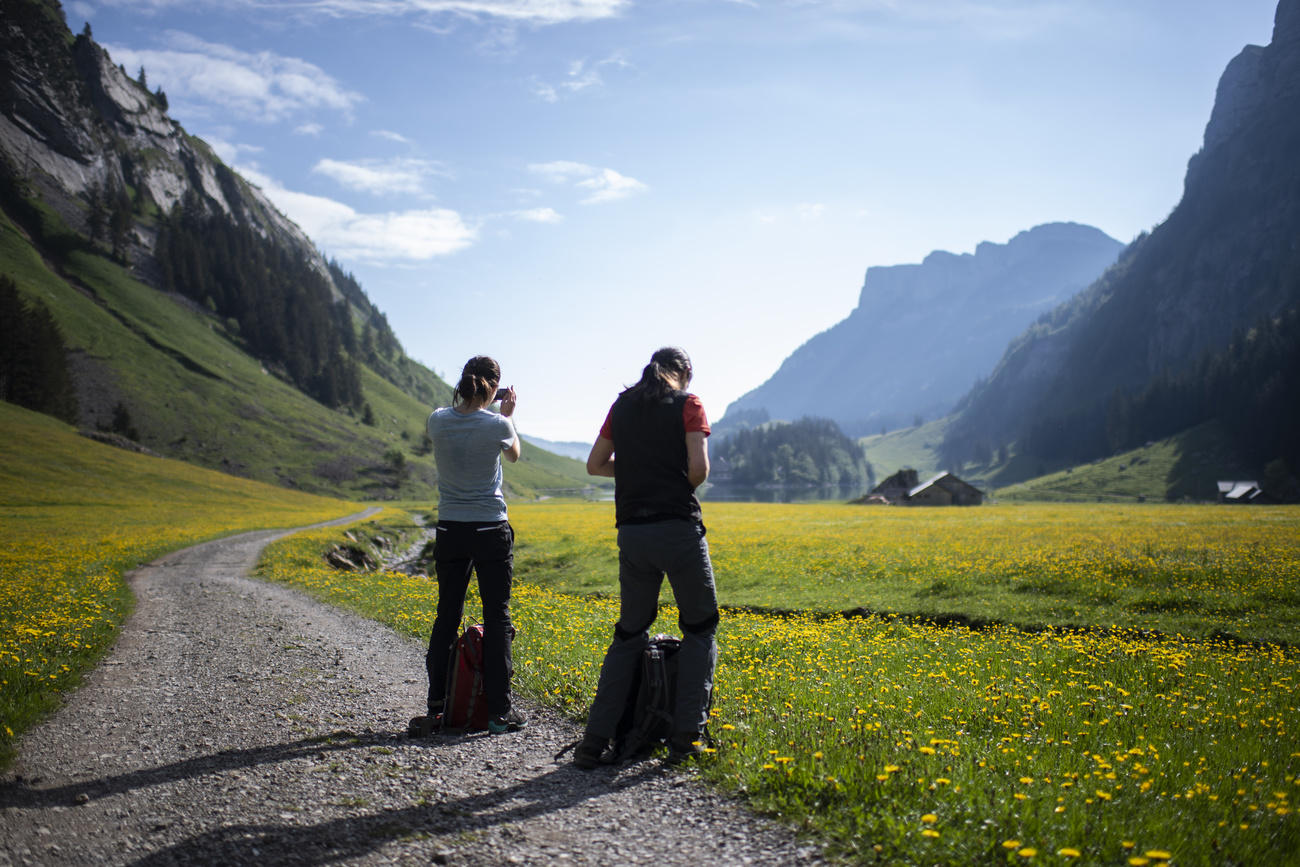
Tourism industry told to adapt to new travel habits

Going on holiday in one’s own country and in the countryside, in smaller groups and sometimes with restrictions – this is the new reality to which the tourism industry must adapt, according to a study by the University of St Gallen.
Mobility and socialising: both are undesirable in times of Covid-19. The tourism industry was therefore the first to be affected by the government lockdown and other measures and “will be one of the last to re-open”, write study authors Christian Laesser and Thomas Bieger.

More
‘Clean and safe’ image could boost Swiss tourism
While people certainly want to travel, they remain reluctant to do so because of the health risks and economic uncertainties, they say. “For the time being, Switzerland must adjust to domestic tourism. This is difficult to control because of reluctant guests, short-notice travel decisions and short stays.”
Flexible pricing systems could help balance out peak times and capacity utilisation. In addition, locally and regionally valid vouchers with a nominal value that is higher than the price to be paid could boost demand, according to a statement from the University of St Gallen on Tuesday.
The authors expect an early recovery with smaller groups travelling with family or friends and people who do not belong to risk groups. Trips planned at short notice by car, motorbike or bicycle to relatively remote and sparsely populated areas are more likely to be popular than longer trips in larger groups using public transport.
Price pressure
Prices in urban hotels for tourists and businesspeople are likely to come under particular pressure in summer and autumn, the study predicts. It expects good demand and stable prices in other forms of accommodation as well as in rural holiday hotels with a high proportion of Swiss regulars.
While the recovery is starting in Switzerland, it is likely to spread to Europe from the third quarter of 2020. A recovery in tourism from other continents is not likely to set in until around mid-2021, the authors believe.
They think that international travel would not “reasonably recover” for another three years.

More
Coronavirus: the situation in Switzerland

In compliance with the JTI standards
More: SWI swissinfo.ch certified by the Journalism Trust Initiative





























You can find an overview of ongoing debates with our journalists here . Please join us!
If you want to start a conversation about a topic raised in this article or want to report factual errors, email us at english@swissinfo.ch.